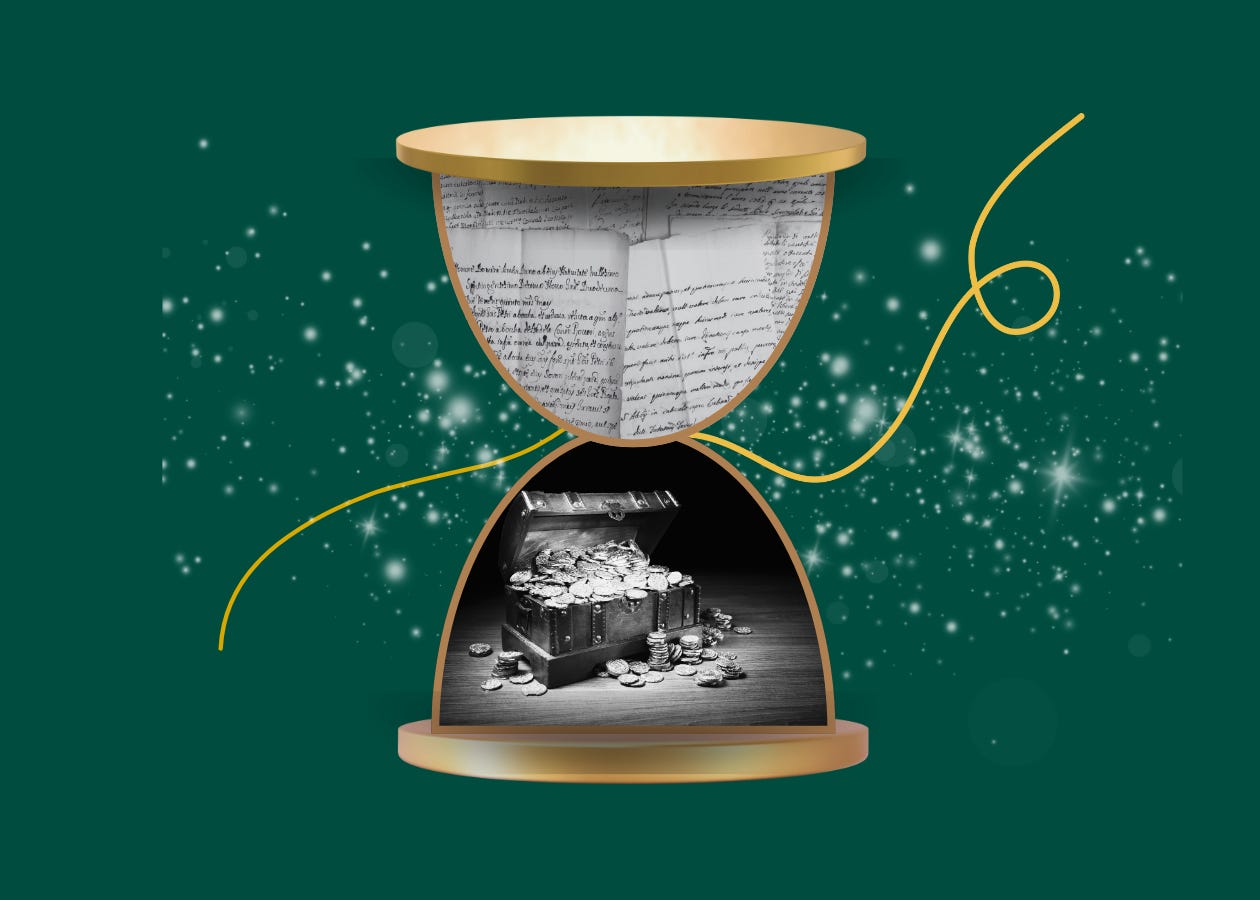Online Sources of Historical Context for Family History (From Least Easy to Most Easy to Access)
Discover 6 easy ways to add historical context to your family stories—plus which AI tools to avoid right now.
Historical context transforms family history from a listing of facts into interesting stories. It answers questions like:
What was life like for my ancestor?
What was their day at work like?
What did they see, feel, or fear in the community?
But adding that context doesn’t always have to mean just using newspapers and county biographies.
If you are looking for both useful and unusual sources, this is my personal “go-to” list ranked from hardest to access online to easiest to access.
Ranked: Finding Historical Context Online
5. Historical Society Journals (County + State)
What it is: Periodicals from local and state historical societies, often with original articles on events, industries, and families.
Where to find it: County or state historical society websites, libraries, or archives.
Why it’s powerful: These journals capture local stories and details you won’t find anywhere else. Articles are a mix of oral history, local traditions, and local sources not available online
Why it’s hard: Can be hard to access, poorly indexed, and not fully digitized.
4. Library of Congress Research Centers
What it is: Specialized research hubs within the Library of Congress, covering topics like labor, immigration, , law, and more. Few people know that the LOC is organized by “Research Centers” with expert librarians curating materials and answering research questions.
Where to find it: loc.gov/rr
Why it’s powerful: High-quality, curated research guides and primary sources. You can submit your questions online and chat with expert librarians.
Why it’s hard: It’s the Library of Congress, the place that tries to keep one of everything ever created, which means millions of sources. Targeted search is essential, because rabbit holes are everywhere.
3. WPA Life Histories and Local Reports
What it is: The Works Progress Administration Project (WPA) employed writers from 1935-1942. They traveled around the US collecting interviews, town histories, and cultural snapshots of everyday life.
Where to find it: https://lccn.loc.gov/mm82055715
Why it’s powerful: Raw, personal, and full of colorful details—especially for under-documented communities.
Why it’s hard: Much of what was collected by the WPA was left with state governments, but not necessarily published. Some is digitized and its best to start with the original finding aid linked above and then see if its online.
2. FamilySearch Catalog + Digital Library
What it is: A massive collection of place-based records, books, maps, and family histories curated by FamilySearch.
Where to find it:
Why it’s powerful: Rich in local histories and hard-to-find books. You can search by town, surname, or topic.
Why it’s medium-easy: Thorough search involves looking in two places on one website which can be confusing. Best used for search by location (city, county, state). A research log is a must.
1. Wikipedia Footnotes
What it is: The links and citations at the bottom of a Wikipedia article.
Where to find it: Scroll down any relevant article (e.g., “Steel industry in Pittsburgh”).
Why it’s powerful: Academics, journalists, and history nerds have already compiled and cited great resources—you just follow the trail.
Why it’s easy: You don’t even need to read the Wikipedia article—just mine the sources! Links are archived, so they should not disappear on you, and all images in articles are copyright free.
Bonus AI Resource: Perplexity.ai
What it is: An AI-powered search tool that answers questions using real sources and direct links. It curates websites that it considers authoritative and does deep searches of the internet.
Where to find it: perplexity.ai
Why it’s great: You can type plain-English questions like “What was life like for a milkman in 1940 Pennsylvania?” and instantly get a sourced, linked summary. It also provides a list of follow-up questions to help you follow your curiosity, but you can type in any question to go deeper into a search.
Why it’s the easiest: Fast, accurate, and clickable. It’s like Google, but with footnotes and honest answers.
🚫 Warning: Online History Sources to Avoid
These AI tools are used often for research—but not trustworthy for verifiable historical context:
ChatGPT (OpenAI) and Claude (Anthropic) – Great for writing, but both make up sources and often hallucinates facts when doing specific historical research. The “Deep Research” modes do not always have access to the sources most useful for genealogists (yet).
Gemini (Google AI) – Still struggles with sourcing. Often vague and misleading. Shocking given who the developer is.
AncestryAI – Confuses locations, generates a different “history” with each query, and interjects its moral interpretations of the past. Truly the worst AI for historical context.
I hope you found something useful here to help you find local history for your ancestors.
Until next time - happy writing!
–Denyse Allen
P.S. I’ve added a “Start Here” page to Chronicle Makers to help you figure out what is on the website. You can check it out here:







Thanks for this list - great resources filled with so many potential stories! Thanks also for the warnings about some of the AI options out there 😬
Really helpful, thank you